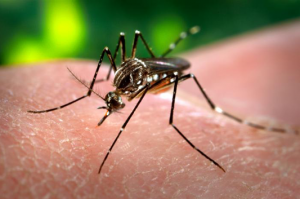
Aedes aegypti. Photo: James Gathany, CDC
It’s a story at least three years in the making, but a research company affiliated with Google is now reporting successful mosquito elimination at three California sites, thanks to introducing lethal bacteria to the male mosquito population.
In May 2017, we reported that the Florida Keys Mosquito Control District was testing a new way to control yellow fever mosquito (Aedes aegypti) populations by releasing bacteria-infected male mosquitoes. The Wolbachia bacteria is considered to be harmless to humans, but when infected male mosquitoes mate with females, the resulting eggs do not hatch.
Nearly two years later, the April 22 issue of the Journal of Medical Entomology found a reduction of female Asian tiger mosquitoes by more than 75 percent as a result of a study in Florida. At that time, we reported that “the researchers in the study stress that this biological approach should be viewed as a tool in the integrated pest management toolbox, just one component of a more holistic strategy for control. They are now looking to fine-tune the approach, timing the release of the infected males with larvicide application to optimize control and keep down costs and larvicide use.”
Now, the company that originally developed the bacteria-infected mosquitoes, MosquitoMate, is working with Verily Life Sciences, owned by Google parent Alphabet Inc. The team is reporting trial results from three sites in California’s (admittedly arid climate) Central Valley, and it’s a promising number: 93 percent of female mosquitoes have been suppressed. The report appears in the journal Nature Biotechnology’s April 6 issue.
According to a Bloomberg article on the topic, “Verily is also running coronavirus triage and testing in parts of California. Bradley White, the lead scientist on the Debug initiative, said mosquito suppression is even more important during the pandemic, so that outbreaks of mosquito-borne diseases such as dengue fever don’t further overwhelm hospitals.”
Verily is currently partnering with Singapore’s National Environment Agency, and according to the Bloomberg article, looking at partnering with agencies in South America and the Caribbean.
Leave A Comment